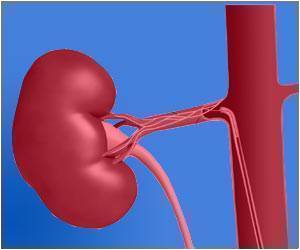Kidney failure patients who took part in education programs are more likely to get evaluated for a kidney transplant, reveals study.

In an attempt to educate patients about the transplant process, the Emory Transplant Center''s kidney program implemented a required educational session in 2007 for each patient who was referred for a kidney transplant evaluation. The session consisted of a half-day class involving lectures and discussions from a transplant coordinator, financial coordinator, and social worker.
Rachel Patzer, PhD (Emory University) and her colleagues looked to see if this required patient education program helped reduce transplant-related disparities. The researchers retrospectively examined information from 1,126 kidney failure patients who were referred for kidney transplant evaluation between 2005 and 2008. Seventy-five percent of patients were referred before the program was implemented, while 25% were referred after.
Among the major findings:
- After the education program was implemented, 80.4% of patients completed a kidney transplant evaluation within one year, while before the program only 44.7% completed the evaluation during that time.
- The intervention particularly improved the likelihood that black patients and those patients living in poor neighborhoods would complete an evaluation.
The findings indicate that kidney failure patients who take part in an education program are more likely to get evaluated for a kidney transplant. Also, requiring a formal patient education class may help reduce disparities among patients.
"This study provides some evidence to test an intervention of a patient education program for potential transplant candidates in a randomized controlled study to examine whether this improves access to kidney transplantation for poor or minority patients," said Dr. Patzer. "These results may also give other centers an idea of how to design and evaluate their own centers'' educational programs by subgroups of race and socioeconomic status," she added. Patzer noted that current clinical guidelines do not provide recommendations on the most effective content and format for such educational programs.
Advertisement
Source-Newswise















